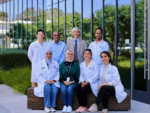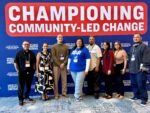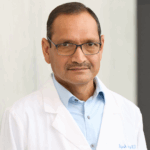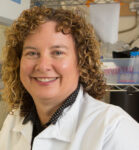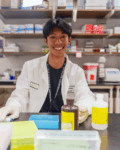News
-
Study Identifies Blood Protein Albumin as Key Defense Against Deadly Fungal Infection “Mucormycosis”
A new international study published in Nature has identified albumin, the most abundant protein in human blood, as a powerful and previously unrecognized defense against mucormycosis, a rare but often fatal fungal…
ResearchJanuary 23, 2026 -
The Lundquist Institute for Biomedical Innovation Receives Funding to Strengthen Hospital-Based Violence Prevention Workforce
The Lundquist Institute for Biomedical Innovation was recently awarded funding as part of the Kaiser Permanente Center for Gun Violence Research and Education’s grant to support innovative healthcare-based…
CommunityJanuary 15, 2026 -
Nature Communications Study from The Lundquist Institute Identifies Molecular Mechanism Underlying Peripartum Cardiomyopathy
Scientists at The Lundquist Institute for Biomedical Innovation have identified a previously unknown molecular safeguard that protects the heart during pregnancy, shedding new light on the causes of…
ResearchJanuary 9, 2026 -
Dr. Rajesh K. Garg Recognized for Key Contributions to the 2026 ADA Standards of Care in Diabetes
The American Diabetes Association (ADA) has formally recognized Dr. Rajesh K. Garg, MD, for his important contributions to the 2026 ADA Standards of Care in Diabetes, one of…
ResearchJanuary 7, 2026 -
The Lundquist Institute proudly welcomes Dr. Michelle L. Matter
Michelle L. Matter, PhD joins The Lundquist Institute as an expert in two areas of cardiovascular medicine: cardiomyopathies and sepsis. Underlying these two diseases is a common mechanism that involves cell adhesion…
ResearchJanuary 6, 2026 -
We are delighted to welcome Dr. Santosh Kesari to The Lundquist Institute
Santosh Kesari, MD, PhD joins The Lundquist Institute as an esteemed investigator in Cancer Biology and Immunotherapeutics, bringing exceptional expertise as a board-certified neurologist, oncologist, and clinical trialist. His multidisciplinary research…
ResearchJanuary 5, 2026 -
Are Food Additives Affecting Our Metabolism? Dr. Rajesh Garg’s Research Offers Important Clues
Every day, most of us eat foods that were made to last: breads, tortillas, yogurts, cheeses, lunch meats with preservatives, ingredients added to keep them safe, stable, and appealing. But what if some…
ResearchDecember 19, 2025 -
Building a Future in Medicine: How High School STAR Program Fellow Bryce Tom Found His Place in Infectious Disease Research
Pursuing a future in medicine came with few doubts for Bryce Tom. With physicians as parents, Tom grew up recognizing the fulfillment his mother and father gained from their work, making it…
EducationDecember 17, 2025 -
Reframing HIV Prevention Through Community, Trust, and Equity
Every December, HIV Awareness Month urges us not only to reflect on medical breakthroughs, but also to confront the inequities that endure despite them. Modern antiretroviral…
Community, ResearchDecember 4, 2025 -
The Lundquist Institute’s Medical-Financial Partnership Awarded $3.42M from the Conrad N. Hilton Foundation to Expand Innovative Health and Financial Care Model
The Lundquist Institute is proud to announce that its Medical-Financial Partnership (MFP), co-directed by Monique Holguin, LCSW, PhD, and Adam Schickedanz, MD, PhD, has been awarded…
Community, ResearchNovember 13, 2025
